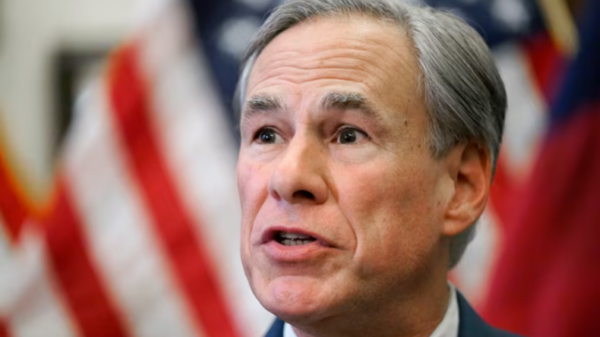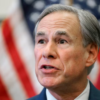
Democrat Beto O’Rourke said Wednesday that as governor he would provide residential property tax relief by pushing the Legislature to expand Medicaid and legalize marijuana.
In a news conference outside a South Oak Cliff church, O’Rourke said his property tax reduction plan would include compelling the state to fund 50% of the cost for public education, with the rest being paid for by property tax owners. Currently, O’Rourke said, property owners pay 60% of the cost for public education.
O’Rourke said he would also have commercial property owners and residential property owners all pay their fair share by mandating full sales price disclosures.
While not in his plan, O’Rourke said he would be open to expanding gambling in Texas to allow casinos and sports betting. Expanding gambling, as well as having the state pump in 50% of public education costs, would likely require a Constitutional Amendment.
O’Rourke blamed Gov. Greg Abbott, his opponent in the Nov. 8 election, for soaring property taxes on top of higher energy bills in the aftermath of the 2021 winter storm.

“He is the single greatest driver of inflation in the state of Texas and is causing real pain to our fellow Texans right now,” O’Rourke said of Abbott.
Abbott countered with an email blast criticizing O’Rourke for supporting an El Paso property tax increases when he was on the City Council.
“Serial flip-flopper Beto O’Rourke is once again misleading the public,” said Abbott campaign communications director Mark Miner. “Gov. Abbott has reduced property taxes for Texans by over $18 billion since taking office, while Beto O’Rourke has an established track record of increasing property taxes while serving on the City Council in El Paso.”

O’Rourke’s news conference, where he was joined with state Sen. Nathan Johnson of Dallas and District 7 council member Adam Bazaldua, comes as homeowners are getting sticker shock after being notified of skyrocketing appraisals.
Because the state has no income tax or sales taxes on food, Texas’ taxing jurisdictions rely heavily on property taxes for support.
“In the seven years that he’s been governor, property taxes have gone up $20 billion in the state of Texas, that’s an increase of 40% over where we were when he first began,” O’Rourke said. “Part of the reason we wanted to be here in South Oak Cliff is we’re hearing this from residents in this community, folks who’ve lived here their entire lives, maybe generations, who are about to get priced out of their homes and priced out of this neighborhood.”
O’Rourke said simple fixes would provide billions of dollars in revenue to offset property taxes reductions, including the expansion of Medicaid under the Affordable Care Act. Although many Republican states have accepted the federal deal to expand Medicaid and get back federal dollars for health care, Abbott and the Republican-controlled Texas Legislature have resisted such a move.
O’Rourke said expanding Medicaid would “draw down $10 billion in our own money that we paid to the federal government and income taxes.”
“It produces extraordinary local returns in our economy,” O’Rourke said. “And by the way, it reduces the property tax burden, because we no longer have to foot the bill for indigent health care at our public hospitals through our property taxes.”
O’Rourke’s plan also includes potentially reaping billions of dollars by legalizing marijuana.
“Right now we spend half a billion dollars a year locking people up for a substance that is legal in most of the rest of the country, most of the rest of the developed world,” O’Rourke said. “We also lose out on, conservatively speaking, half a billion dollars in tax revenue.”
O’Rourke did not include expanding gambling in his plan, though he said he would be open to the state keeping the billions of dollars Texans spend on casinos in states including neighbors Oklahoma and Louisiana.
“If we were to make legal casino gambling and sports betting in the state of Texas, which as you all know, many Texans engage in now … we would be able to bring in billions of dollars more,” O’Rourke said. “From listening to Texans across the state, it’s a very popular proposal. It would also help us to address some of the challenges that we have in reducing inflation and property taxes.”
As Johnson nodded, O’Rourke said it was important for commercial property owners to pay their fair share. He supported legislation that would close loopholes available to those property owners.

“While homeowners and renters are paying the lion’s share of the burden at a local level to fund our government, large corporations and very wealthiest are getting out of their fair share,” O’Rourke said. “That’s because the law under Greg Abbott allows them to do that. We need fairness in appraisals. And we need fairness in what people are paying in their property taxes.”
The El Paso Democrat said “most homeowners cannot afford the lobbyists or the attorneys that can contest corporate valuations.”
“So-called corporate property owners are able to bring down their bills by billions of dollars every single year,” he said. “As governor I’m going to work with the Legislature to ensure that we have full sales price disclosure in the state of Texas so that everyone is paying their fair share, which means that homeowners and renters will pay less.”
Miner countered that O’Rourke’s plan to have the state pay more for public education would leave a nearly $70 billion hole over five years in the Texas budget.
As part of property tax relief, O’Rourke said it was also important for Texas to have more affordable housing, and promised he would follow the lead of local communities in developing a plan.
“I’m going to work with local city councils, local commissioners courts, local leadership to make sure that we address this desperate shortage in housing across the state of Texas,” O’Rourke said.
But O’Rourke said he was against forcing appraising caps on local taxing jurisdictions to provide property tax relief.
“If the state’s going to be a good partner to local governments, then we have to be able to trust local governments to make the best decisions for their constituents,” O’Rourke said.
When asked how he could get his property tax relief agenda through a Republican-controlled Legislature, O’Rourke expressed optimism.
”We can get this done if we have leadership at the top that is seeking out the common ground,” O’Rourke said. “I am looking forward to working with Republicans and Democrats alike … Right now we are a deeply divided, highly fractured state. We do not have to be that way going forward.”
»The Texas Squeeze: A series examining the high cost of high growth in North Texas.









You must be logged in to post a comment Login